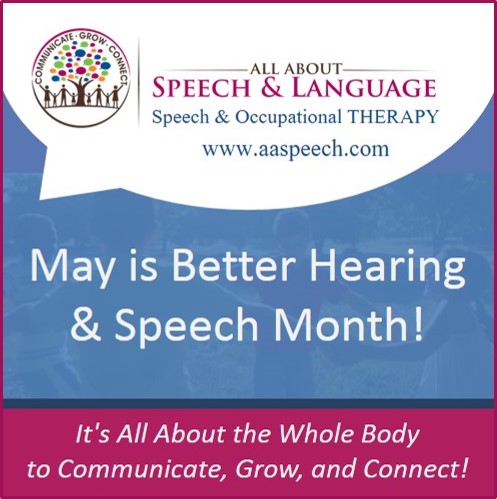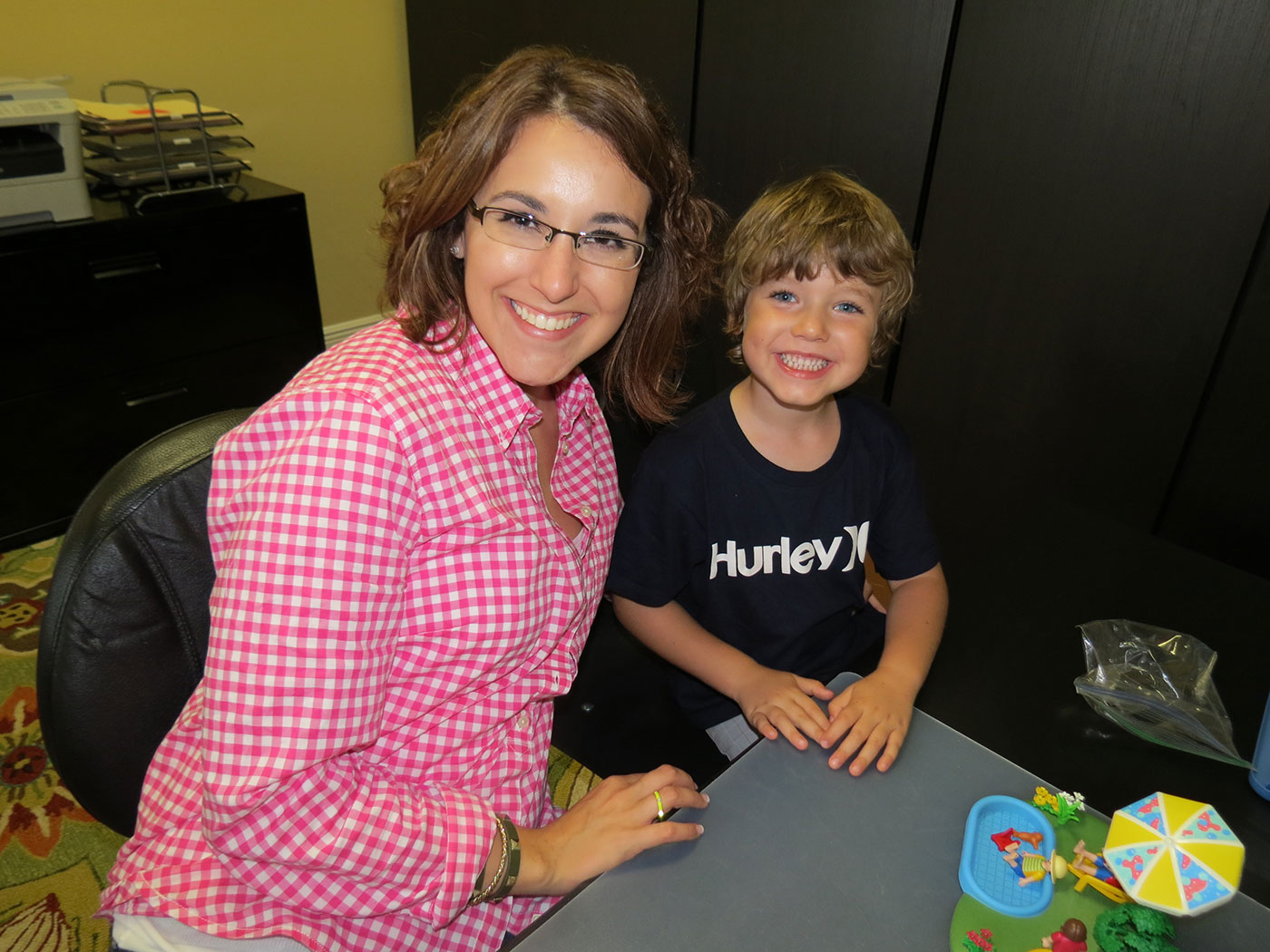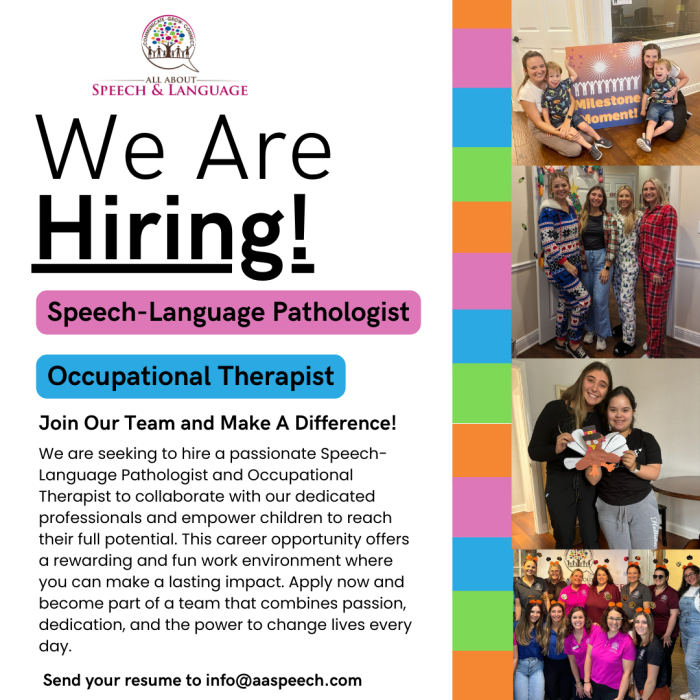
So it’s May, one of my favorite times of the year! Spring is in full bloom, there is a bustle of
excitement for summer, there are several birthdays to celebrate and honor amongst family and friends, and professionally it’s BETTER HEARING AND SPEECH MONTH! Who wouldn’t get excited about that??
Every year, our governing body through which we as speech-language pathologists receive our credentials of CCC-SLP, takes a month to celebrate and showcase the fields of audiology and speech-pathology to bring awareness to causes that impact hearing, speech, language and everything in between.
This year’s theme: Communication – The Key to Connection
My first thought, what a perfect theme as it fits right in with our company mission
to “communicate, grow, and connect.” And as I explored further in anticipation of this month, American Speech and Hearing Association (ASHA), is showcasing our beloved sister-profession of audiology however, don’t be so quick to write off “better hearing and speech month” with this blog post coming from an Speech & Language Pathologist!
Central Auditory Processing Disorder (APD) – Signs and Symptoms/Diagnosing:
Children may have a hard time understanding speech in noisy environments, following
directions, discriminating between similar sounding speech sounds, trouble with reading, spelling, and understanding information presented verbally. A multidisciplinary team approach is key for fully assessing and understanding the difficulties associated with APD (i.e. SLPs, teachers), however it is important to understand that ONLY AN AUDIOLOGIST can diagnose an APD.
It should also be known that most of the testing administered require that a child be at least 7-8 years of age because of the variability in rain function for younger children. Once a diagnosis is made, there are several types of deficits that are then identified relative to the impact it has on each individual child.
Treatment:
There is no specific treatment or method that is used to treat APD, therefore, it is highly
individualized. Treatment will focus on areas such as changing the learning or communication environment, recruiting higher-order skills to help compensate for the disorder, and remediation of the auditory disorder itself. Treatment will focus on specific areas that are impacted by the APD itself (i.e. reading, cognition, executive functioning, language, memory, attention, spelling, writing etc).
There are a variety of programs available to help as well such as Interactive Metronome (IM), which our therapists are at All About Speech & Language (AASL) are trained in and are happy to provide information as to how this program can help treat symptoms associated with APD, as well as Rhythmic Entrainment Intervention (REI) a custom-made auditory brain stimulation program for individuals with neurological disorders, which our AASL Occupational Therapists are trained in and oversee. If you would like more information on any of these programs, please let us know we are happy to set up a call or meet with you about how they can help your child.




